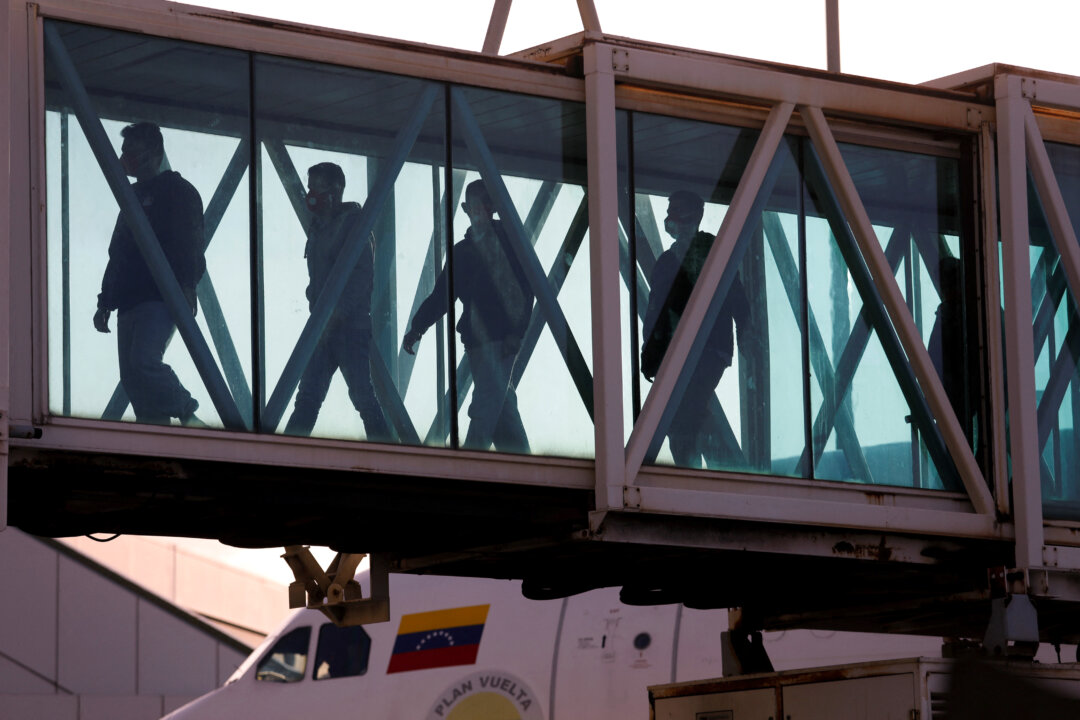The ruling preserves protections against deportation while deepening the legal battle over executive discretion in immigration policy.
A federal appeals court on Friday denied the Trump administration’s emergency request to lift a court order blocking the termination of deportation protections for nearly 350,000 Venezuelans.
In a one-page decision issued on April 18, a three-judge panel of the Ninth U.S. Circuit Court of Appeals said the administration failed to show it would suffer “irreparable harm” if the lower court’s injunction remained in place. The court declined to stay a March 31 ruling by U.S. District Judge Edward Chen that preserved Temporary Protected Status (TPS) for Venezuelans while a legal challenge proceeds.
The appeals court’s denial means that Homeland Security Secretary Kristi Noem’s attempt to revoke TPS designations for Venezuelans remains blocked for now. The decision also sets up a high-stakes legal showdown this summer, with the court scheduled to hear full arguments in the case in July.
A request for comment on the ruling sent to the Justice Department—which is representing Noem in the legal dispute—was not immediately returned.
TPS grants temporary legal status and work authorization to nationals of countries experiencing war, natural disaster, or other extraordinary conditions that prevent safe return. The Biden administration expanded TPS to cover hundreds of thousands of Venezuelans in 2021 and again in 2023, citing severe humanitarian and political crises.
Noem reversed those designations earlier this year, saying that Venezuela no longer met the criteria and that continued protection ran counter to U.S. national interests.
Noem’s move would have ended TPS protections for 348,202 Venezuelans on April 7, but the district court’s March 31 preliminary injunction—upheld by the Ninth Circuit on April 18—puts that on hold.
An additional 250,000 Venezuelans are expected to lose TPS protections in September unless the designation is renewed. Separately, DHS has rescinded an 18-month extension of Haiti’s TPS announced under the Biden administration, setting the program to expire in August and affecting more than 500,000 Haitian nationals.
In his March 31 ruling, Chen found that Noem’s actions were likely “unauthorized by law, arbitrary and capricious, and motivated by unconstitutional animus.” He cited what he said were derogatory and false comments by both Noem and President Donald Trump that stereotyped Venezuelans as criminals.
Chen’s ruling emphasized the serious consequences of ending TPS without proper justification, warning that it would upend the lives of hundreds of thousands of people, disrupting families and local economies. At the same time, the judge found that the government had “failed to identify any real countervailing harm” in continuing the TPS protections for Venezuelans.
In court filings, Justice Department lawyers argued that Noem acted within her statutory authority and that such decisions were not subject to judicial review.
“Secretary Noem consulted with appropriate governmental agencies, including the Department of State, and determined that prolonging Venezuela’s TPS designation was contrary to the national interest in light of factors—such as gang activity and public safety concerns, adverse impact on U.S. communities, foreign policy interests, immigration and border policies, and the potential magnet effect of TPS on illegal immigration—that are rational and related to the Government’s legitimate interests in immigration, national security, and foreign policy,” DOJ attorneys wrote in their motion for a stay of Chen’s injunction.
Attorneys representing Noem also argued that Chen’s order amounted to an unauthorized injunction that blocked the government’s ability to implement immigration policy—violating clear limits imposed by Congress.
“A single judge took charge of federal immigration policy with respect to Venezuela and supplanted the Executive’s authority over sensitive determinations of the national interest of the United States,” their motion states.
Immigrant advocates praised Friday’s decision as a major win for TPS holders.
“This decision reaffirms what our communities have always known—that our lives are not bargaining chips and our presence here is rooted in justice,” Jose Palma, coordinator of the National TPS Alliance, the lead plaintiff in the case, said in a statement.
“Any attempt to strip us of protection without due process is not just unlawful—it’s inhumane.”
Freddy Arape, a plaintiff in the case, said: “I am proud to lock arms with brave TPS holders and allied organizations as part of this legal challenge to preserve humanitarian protection for so many families who rely on it.”
With the Ninth Circuit set to hear arguments in the case in July, the fate of the temporary protected status for hundreds of thousands of Venezuelans remains uncertain, hinging on how the appeals court ultimately rules on the legality of the administration’s TPS-related policies.

